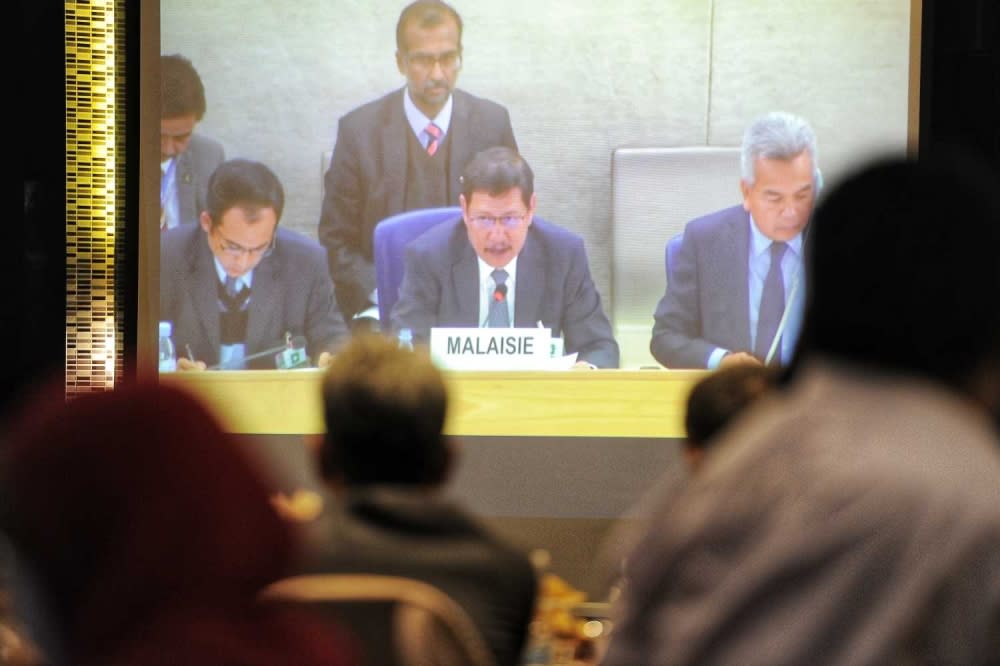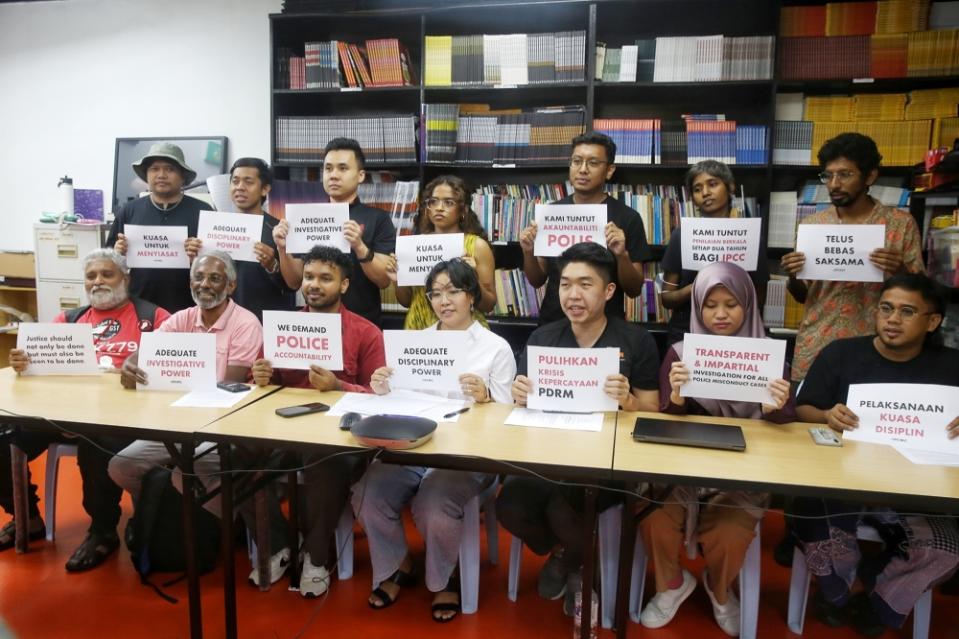Malaysia faces UN council's 4th review of human rights progress tonight with statelessness concern up in air

KUALA LUMPUR, Jan 25 — For the fourth time since 2008, the Malaysian government is scheduled to report to the United Nations (UN) in Geneva, Switzerland tonight on its progress and what it has done to improve human rights in the country.
Set for 10pm Malaysian time, the Universal Periodic Review (UPR) will deliberate on 29 reports from stakeholders which include the Human Rights Commission of Malaysia (Suhakam), civil societies, and their coalitions such as the Coalition of Malaysian NGOs in the UPR Process (Comango) and its Islamist counterpart Malaysian Alliance of Civil Society Organisations in the UPR Process (Macsa).
“We have been sending in our recommendations since the first cycle, which was in 2008. While there are still some recommendations mentioned again in the upcoming cycle, we can see that the government is slowly opening up, especially after 2018,” said Pusat Komas program director Ryan Chua, who is leading Comango’s secretariat alongside Suara Rakyat Malaysia’s (Suaram) Jernell Tan Chia Ee, told Malay Mail in a media briefing last week.
Ahead of the review, human rights watchdog Suaram had in a joint statement with regional groups Civicus and Forum-Asia, made several recommendations for Malaysia, including protecting human rights defenders.
“The government must take steps to establish a protection mechanism for human rights defenders. It should do more to promptly and impartially investigate all forms of harassment, threats, and attacks made against human rights defenders.
“It is also time to review the archaic Societies Act in order to fully guarantee the people’s right to freedom of association. Such laws should be used to empower people rather than to block the formation of NGOs and political parties,” said Suaram's executive director Sevan Doraisamy.
Held every four and a half years, the UPR is a UN Human Rights Council (UNHRC) mechanism that was established in 2007 to improve the treatment of human rights in all 193 UN member states.
The process involves a three-hour interactive dialogue, where UNHRC members will question Malaysia based on reports prepared by the government, UN agencies, and the stakeholders’ report ― which summarises the reports of NGOs both national and international.
Among the common issues brought up by all three of Suhakam, Comango, and Macsa for this round of UPR are on statelessness and persons with disabilities.
Meanwhile, Suhakam and Comango both reported Putrajaya's shortcomings in ratifying six of the nine core international human rights treaties: the International Convention on the Elimination of All Forms of Racial Discrimination (Icerd), the International Covenant on Civil and Political Rights (ICCPR), the International Covenant on Economic, Social and Cultural Rights (ICESCR), the Convention against Torture and Other Cruel, Inhuman or Degrading Treatment or Punishment (CAT), the International Convention on the Protection of the Rights of All Migrant Workers and Members of Their Families (ICMW), and the International Convention for the Protection of All Persons from Enforced Disappearance (ICPED).

Suaram, a member of the Coalition of Malaysian NGOs in the UPR process (Comango) in a recent press conference questioning the Independent Police Conduct Commission (IPCC), January 22, 2024. — Picture by Choo Choy May
The duo also brought up issues affecting the rights of the indigenous people, women, and children as well as the long-standing issue of migrant’s and refugees’ rights.
In addition, Comango also brought up issues around four thematic areas which it believes are in dire need of reform, including the lack of transparency in the appointments for the Independent Police Conduct Commission (IPCC), the Malaysian Anti-Corruption Commission (MACC) and Suhakam.
Comango also brought up the need for equality and non-discrimination in gender issues, treatment of the lesbian, gay, bisexual, transgender, intersex and queer (LGBTIQ) community, racism and xenophobia.
Other themes highlighted were on the freedom of religion or belief, freedom of expression, association and assembly, and freedom from torture.
Malaysia's last UPR was in 2018, when it accepted just over half of the recommendations given by the member states,
Out of 268 recommendations given during the previous UPR cycle, 147 recommendations were fully accepted, 37 were accepted in part, and 83 recommendations were merely noted.
In 2018, the Malaysian delegate to the UPR had defended the practice of infant female circumcision as “a cultural obligation”. Replying to recommendations from peers such as Sweden and Denmark, a representative from the Women, Family and Community Development Ministry denied female genital mutilation (FGM) is practised here despite evidence pointing otherwise.
Among countries who urged Malaysia to protect its sexual and gender minorities then were Germany, Austria, Canada, Chile, Argentina and the United States.
Other recurring recommendations made to Malaysia in 2018 included setting the minimum marriage age to 18, imposing a moratorium on the death penalty, ensuring rights for migrant workers and refugees, tackling human trafficking and ensuring freedom of religion for all.



